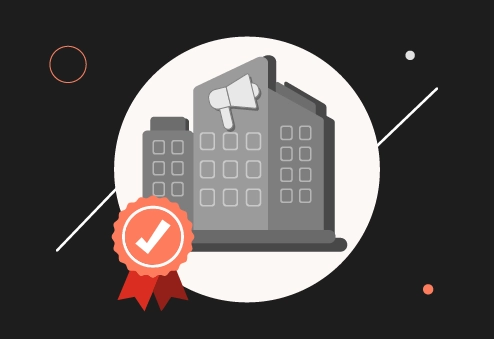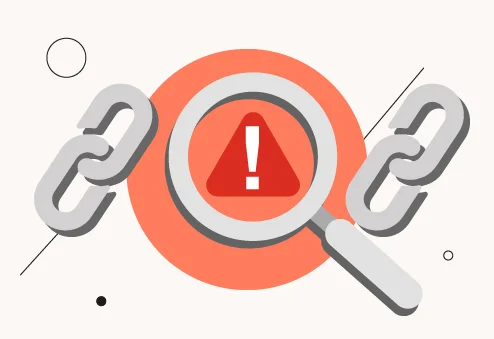Emergency response technologies are at the forefront of crisis management and saving lives. These innovations are key to ensuring quick responses, smooth coordination, and real-time insights when every second counts.
However, without effective marketing strategies, even these technologies can remain unnoticed and miss the chance to make a real impact when it’s needed.
Local SEO helps bridge that gap, making sure emergency response technologies are seen by the communities that need them most.
Ready to stand out and become the trusted choice in your area? Let’s look at how the right local SEO strategies can help your emergency tech company get discovered by the people who need it most.
Why SEO Matters for Emergency Response Companies
Emergency response technology companies work in a specialized field, often helping specific geographic areas with solutions that rely on local support and understanding.
Local SEO is vital because it ensures your life-saving technologies, whether it’s a firehouse alerting system or real-time dispatch software, are easily found by the agencies that need them in critical moments. When emergency situations happen, the right technology must be quickly accessible.
Here’s why investing in local SEO strategies is a must for your industry:
Targeted Audience Reach: Your buyers aren’t everyday consumers; they’re municipal governments, fire departments that rely on fire department software, and emergency management agencies with specialized needs. Local SEO connects you directly with these decision-makers in your service area.
- Trust and Credibility
When lives are on the line, trust is everything. Dominating local search results signals that your company understands the unique emergency challenges of the communities you serve.
- Competitive Advantage
Many emergency response tech providers still rely on outdated marketing approaches. A robust local SEO strategy puts you miles ahead of competitors stuck in pre-digital marketing methods.
- Marketing That Pays Off
Forget burning your budget on traditional advertising! Local SEO delivers qualified leads directly to your doorstep at a fraction of the cost of other marketing channels.
- Crisis-Ready Presence
When disaster strikes, procurement decisions happen fast. Companies with strong local SEO positioning jump to the top of the list during urgent purchasing decisions.
Now that we’ve covered why local SEO matters for emergency response companies, let’s explore the key strategies that can get your solutions in front of the right people.
Powerful SEO Tactics for Emergency Response Companies
Optimize Google My Business
Your Google My Business profile is your digital base, so it’s important to fill in all the details, like your address, service area, phone number, website, and hours. This helps show both search engines and potential customers that you’re reliable.
Next, choose relevant categories—such as “Emergency Service Equipment Supplier” or “Safety Equipment Supplier”—to improve visibility in search results and ensure you’re found when needed most.
Additionally, use the Products and Services sections to highlight your innovative technologies and their value to emergency agencies. By showcasing how your solutions save lives and improve response times, you demonstrate your business’s impact.
Finally, keep your profile fresh by regularly updating it with case studies, product innovations, and milestones. In turn, responding to reviews promptly shows your dedication to customer care and strengthens client relationships.
Create Location-Specific Landing Pages
If your emergency response technology serves multiple areas, it’s important to create landing pages designed for each location’s unique needs. By addressing specific challenges—such as flood risks or wildfire threats—you can demonstrate how your solutions are designed to tackle these regional concerns.
To strengthen your case, incorporate local emergency response statistics that highlight the real-world impact your technology can have. These data points not only inform decision-making but also showcase the value your solutions bring to local agencies.
Additionally, adding local business schema markup helps signal your geographic relevance to search engines, improving your visibility in location-based searches. Finally, including region-specific contact details ensures local decision-makers can easily reach your team, creating a more personalized and accessible experience for potential clients. Emphasizing EMS inventory management on these pages shows how your technology enables agencies to efficiently track and manage medical supplies, ensuring they are prepared for emergencies in every location.
Use Local Citations
Local citation services help emergency service agencies find your business online. To use them effectively, focus on industry-specific directories that emergency service professionals trust, instead of general listings. These directories ensure your business reaches the right audience.
Joining local Chambers of Commerce in each service area provides access to authoritative digital directories, strengthening your local presence. In addition, securing prominent listings with organizations like the National Emergency Number Association (NENA) or the Association of Public-Safety Communications Officials (APCO) further solidifies your authority in the field.
Lastly, consistency is essential. Ensure your Name, Address, and Phone Number (NAP) are identical across all platforms. Inconsistencies can confuse both search engines and potential clients, especially in critical situations when accuracy is crucial.
Focus on Localized Content and Keywords
Your content strategy should speak directly to the unique challenges faced by local emergency response agencies.
Start by targeting geo-specific keywords that combine your technology with location indicators—terms like “emergency dispatch software in Portland” or “wildfire response technology in Southern California” help you reach the right audience. Also, make sure your focus keyword is integrated naturally into your content to improve relevancy and visibility in local searches.
Then, create content that directly addresses local emergencies. Whether it’s earthquake preparedness or tornado response protocols, offering region-specific solutions shows you understand local needs and reinforces the relevance of your technology.
Success stories also play a key role. Highlighting real-world results from local implementations demonstrates how your solutions have improved emergency response in similar communities, making your impact clear and relatable.
Lastly, position your company as a trusted knowledge source by sharing free educational resources. This not only helps agencies grasp how modern technology can maximize their efforts but also strengthens your authority in the space.
Mobile Optimization for Emergency Response Companies
Emergency responders are constantly on the move, so your digital presence must be built for speed and accessibility. A lightning-fast mobile experience is essential—your website should load instantly, even in areas with weak connectivity where every second counts.
Just as important is enabling immediate contact. Prominent click-to-call buttons make it easy for emergency service directors to reach your team with a single tap in urgent situations, removing any friction when time is tight.
To keep interactions quick and effective, simplify your mobile forms down to the essentials. Emergency professionals don’t have time for unnecessary fields—they need fast, no-fuss communication.
Finally, make sure you’re visible when and where it matters most. Optimizing for local mobile search helps your company appear in on-the-go queries that often lead directly to action, reinforcing your role as a trusted partner in the field.
Build Valuable Local Backlinks
Not all backlinks carry the same weight—especially in local SEO. To strengthen your visibility and authority in specific regions, focus on earning high-impact links from trusted local sources. Implementing strong link building strategies can enhance your presence and help you stand out in local search results.
Start by becoming an approved vendor for local government agencies. This not only strengthens your credibility but can also lead to valuable .gov backlinks, which search engines view as highly authoritative.
Next, build partnerships with regional emergency management organizations. Sharing your expertise or offering support can earn you backlinks while reinforcing your role as a trusted resource in the emergency response space.
Local media is another powerful channel. Newsworthy stories about your technology rollouts or success in specific areas can generate strong backlinks from respected local outlets.
Finally, show your commitment to the community by sponsoring local responder events or training programs. These initiatives often result in backlinks from event pages and partner sites—while strengthening your local presence and reputation.
Final Thoughts
Local SEO gives emergency response technology companies the advantage they need to be seen and stand out online.
By putting the right strategies in place, you can connect directly with the organizations and communities that rely on your solutions.
Don’t let your life-saving technology stay buried in search results—optimize your presence and become the trusted name in your area. When every second counts, make sure your company is easy to find.




